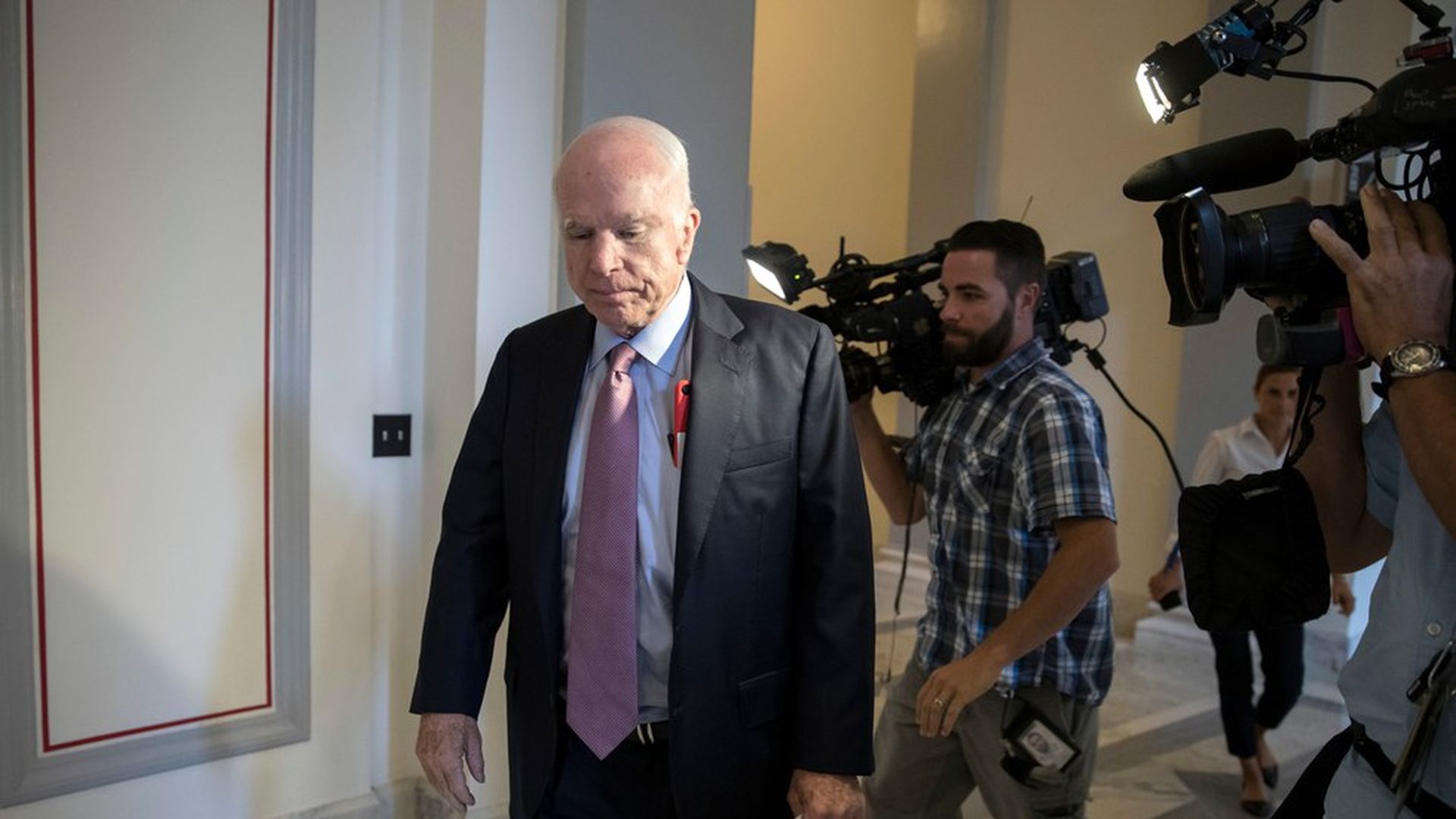Shifts on ACA repeal put new pressure on push for bipartisan fix
Add Axios as your preferred source to
see more of our stories on Google.

Sen. John McCain is back in the spotlight on health care. Photo: J. Scott Applewhite/AP
The uncertainty surrounding Senate Republicans' latest repeal-and-replace bill is putting more pressure on Democrats to reach a deal to stabilize the Affordable Care Act.
Sens. Lamar Alexander and Patty Murray have been working on a plan to tweak the ACA through a mix of looser regulations and more reliable funding. And Alexander's hand in those talks may be getting stronger as a side effect of the momentum behind a repeal bill sponsored by Sens. Lindsey Graham and Bill Cassidy.
Why: Sens. Lisa Murkowski and John McCain are publicly rooting for the stabilization effort to succeed, and Graham-Cassidy can't pass without at least one of them.
- Murkowski has actively participated in the four hearings the Health, Education, Labor and Pensions Committee has held on stabilization, often staying longer than most other members.
- On Sunday, McCain mentioned this effort by name on Face the Nation, saying Republicans shouldn't "ram" their proposal through.
The problem: While Democrats say the negotiations are going well and weekend talks were "productive," per a Democratic aide, Republicans disagree. "There's no deal, and one doesn't look imminent. If there's no deal, I assume that means Republicans are going to flock to the only thing that's on the table," a senior GOP aide told me.
Yes, but: McCain and Murkowski could vote against Cassidy-Graham-Heller-Johnson regardless. Both their states stand to lose under the bill, according to an early analysis by the left-leaning Center on Budget and Policy Priorities. But it seems that if what they've been calling for all along is within reach, it gives them a lot more of an excuse to vote against a GOP-only bill.
Who we're watching: Murray. If she can strike a deal with Alexander — which hinges on giving states more flexibility through innovation waivers — it could deeply influence McCain and Murkowski's decision.
